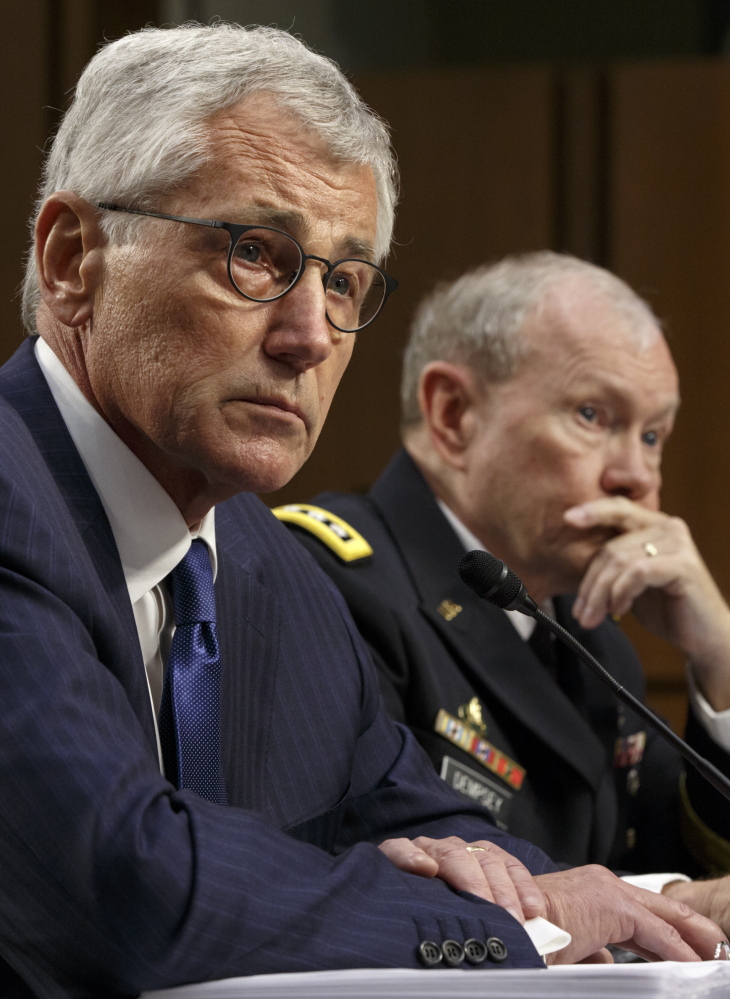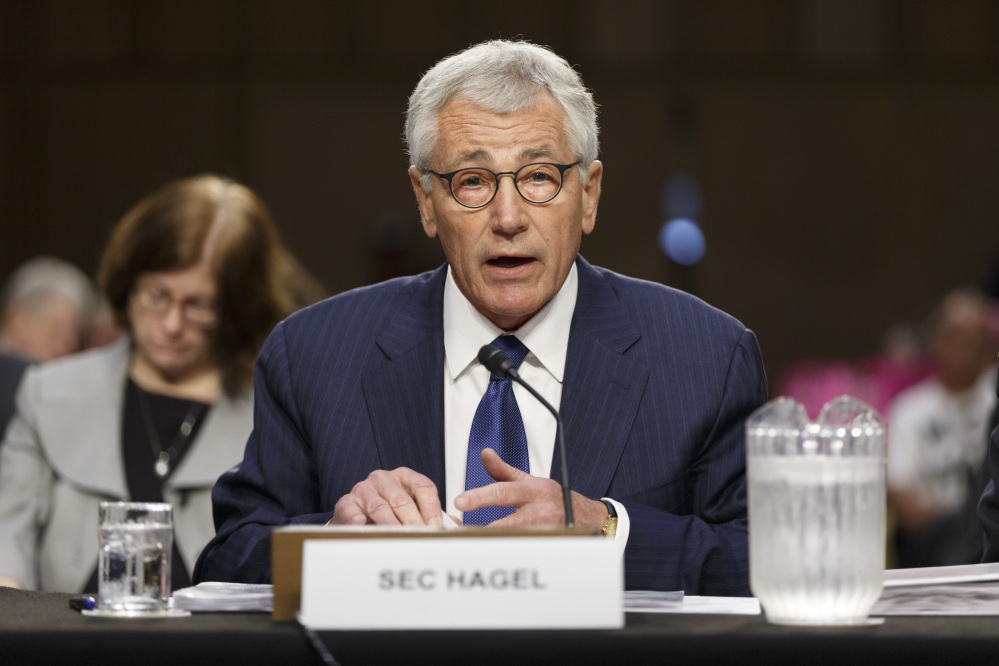WASHINGTON — The nation’s top military officer raised the possibility Tuesday that U.S. troops could become involved in ground attacks against the Islamic State, despite repeated pledges to the contrary from President Obama.
In testimony before the Senate Armed Services Committee, Army Gen. Martin Dempsey, the chairman of the Joint Chiefs of Staff, sketched out scenarios in which U.S. Special Forces might need to embed with Iraqi or Kurdish troops engaged in direct combat with Islamic State fighters.
Under questioning from lawmakers, Dempsey acknowledged that Obama has vowed not to send U.S. ground combat forces back into Iraq, less than three years after the president fulfilled a campaign promise to extricate the military from a long, costly and unpopular war there.
But the general revealed that U.S. commanders have already sought permission, on at least one occasion, to deploy small teams of U.S. advisers into battle with Iraqi troops. Dempsey also suggested that, while Obama has held firm, he might be persuaded to change his mind.
“He has told me as well to come back to him on a case-by-case basis,” Dempsey said. “If we reach the point where I believe our advisers should accompany Iraqi troops on attacks against specific (Islamic State) targets, I’ll recommend that to the president.”
The uncertainty of exactly what role U.S. troops might play in Iraq and Syria comes as Congress prepares to vote on Obama’s request for approval to train and equip about 5,000 moderate Syrian rebels to fight the Islamic State.
The House resolution, expected to come to a vote Wednesday, explicitly says that it does not support U.S. forces on the ground. The resolution is likely to be approved on a bipartisan basis and be included in a broader government funding bill that will make it to the president’s desk by the end of the week, lawmakers said.
The question of ground forces, however, will probably become a central focus of a legislative debate about war powers that is expected to begin after the Nov. 4 elections.
Since June, Obama has ordered the deployment of 1,600 U.S. troops to Iraq in an effort to bolster the country’s faltering army and stop the Islamic State’s advance.
Even as the mission has gradually expanded and the U.S. military has launched 167 airstrikes against the Islamic State, Obama and other White House officials have consistently promised that U.S. troops will not engage in ground combat.
As recently as last week, Obama said in a televised address to the nation that “American forces will not have a combat mission – we will not get dragged into another ground war in Iraq.”
Dempsey told lawmakers that U.S. military advisers are helping Iraqi government forces prepare for a major offensive to reclaim territory seized by the Islamic State in recent months. Those advisers are embedded with Iraqi and Kurdish forces at the brigade or headquarters level – away from the front lines.
Despite Obama’s firm position, some U.S. military commanders have pressed for more leeway to send small numbers of troops into combat with Iraqi forces.
Dempsey testified that Army Gen. Lloyd Austin, the commander of U.S. troops in the Middle East, wanted to embed U.S. troops with Iraqi and Kurdish security forces last month during a battle to retake control of the Mosul Dam from the Islamic State.
According to Dempsey, Austin wanted the U.S. troops to help call in airstrikes. The Joint Chiefs chairman suggested that Austin was overruled, saying the commander changed his mind after further discussions and “found a way” to organize the operation without U.S. personnel present.
At the same time, Dempsey said he and Austin agreed that more situations will arise when military commanders will want to put U.S. Special Forces or airstrike spotters on the ground.
By openly suggesting that U.S. ground combat forces will be needed, Dempsey was walking a fine line between questioning the judgment of Obama, the commander in chief, and sharing his own professional military opinion with lawmakers and the public.
Sen. Carl Levin, D-Mich., the committee chairman, asked Dempsey whether he supported Obama’s strategy.
Dempsey said he did. But he added that if the current approach were to falter, he might recommend a different one, possibly including “the use of U.S. military ground forces.”
Later, he also said he might recommend that U.S. troops provide “close combat advising” to Iraqi forces if they were to attempt a complex mission, such as retaking the northern city of Mosul from the Islamic State.
Obama is scheduled to meet with Austin and Defense Secretary Chuck Hagel on Wednesday at the U.S. Central Command headquarters in Tampa, Florida. Last week, Obama ordered an expansion of airstrikes, adding that it was time to “go on offense” against the Islamic State.
After Dempsey finished his testimony, the White House reiterated that Obama remained opposed to sending U.S. ground troops into combat in Iraq or Syria.
Josh Earnest, the White House press secretary, told reporters that Dempsey’s remarks referred to “a hypothetical scenario” and that it was the military’s responsibility to plan for a wide range of contingencies.
Send questions/comments to the editors.




Success. Please wait for the page to reload. If the page does not reload within 5 seconds, please refresh the page.
Enter your email and password to access comments.
Hi, to comment on stories you must . This profile is in addition to your subscription and website login.
Already have a commenting profile? .
Invalid username/password.
Please check your email to confirm and complete your registration.
Only subscribers are eligible to post comments. Please subscribe or login first for digital access. Here’s why.
Use the form below to reset your password. When you've submitted your account email, we will send an email with a reset code.